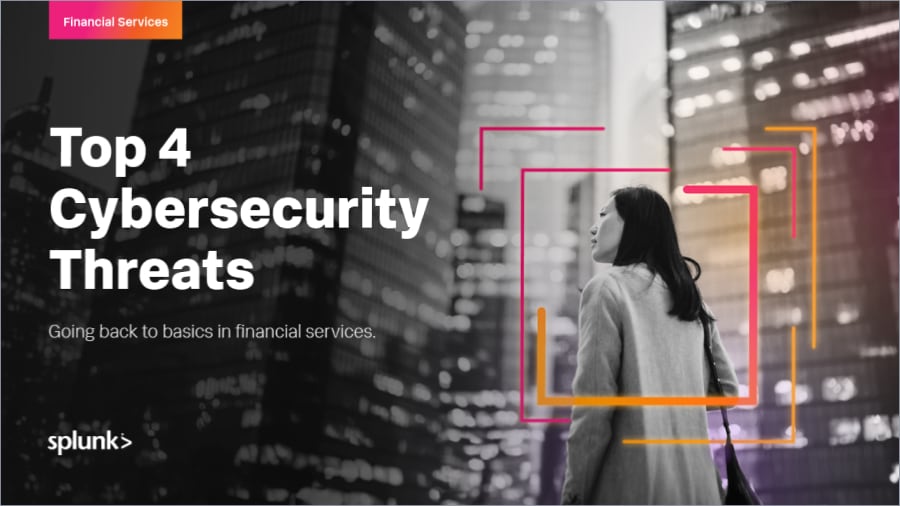The Forensic Investigator Role: Skills and Responsibilities

Businesses adopt new and sophisticated technology every day. All that tech, however, comes with the risk of crime or financial fraud. That’s what forensic investigators help with — they solve these crimes by identifying the criminals and recovering the assets.
Forensic investigators collect evidence from crime scenes, analyze it, and conclude the results in a report that later serves as an important document in trials.
In this article, we will cover the skills, responsibilities, and certifications you need to get started as a forensic investigator.
What is a forensic investigator?
Forensic investigators collect and analyze data from multiple sources to find the key evidence for legal proceedings. Here’s how they do this:
- Seize digital devices from crime scenes.
- Secure evidence to avoid tempering.
- Analyze data to recover hidden or deleted files.
- Document technical details in a report.
They can specialize in different fields, including medical, computer, and financial forensics. However, each field requires a different approach to data collection and analysis.
For example, a financial investigator tracks funds and assets involved in fraud, while computer forensic investigators collect data from networks and digital devices.
Forensic investigator vs crime scene investigator
Crime scene investigators visit crime sites to photograph, measure, and collect physical evidence. They work in distressing environments — that's why this role is suitable for those who can regulate their emotions.
Forensic investigators don't collect evidence directly from crime scenes. Instead, they analyze the data captured at the scene, such as fingerprints or digital devices, to prepare evidence for further investigation.
Forensic investigator vs forensic scientist
Forensic scientists focus on physical evidence such as blood, hair, and clothes. That’s why they spend most of their time in labs to test samples for drugs, poisons, or DNA. You need a bachelor's degree in chemistry, forensic science, or a related field to get this role.
On the other hand, forensic investigators specialize in digital evidence. They collect data from computers and phones to analyze browsing history, deleted emails, and other hidden files.
Responsibilities of a forensic investigator
Every organization assigns a different set of responsibilities. However, there are some standard tasks that all forensic investigators perform regardless of their industry and field. Here’s what they are:
Defining the forensic scope
One of the most important responsibilities is to define the forensic scope to set the parameters for the entire process. This involves preparing a detailed report with the descriptions of:
- The names of those involved in the process.
- The estimated time each phase of the investigation will take.
- The type of forensic an organization wants to conduct (for example, it can be criminal or financial).
- Budget and allocated resources.
By thoroughly defining the scope upfront, investigators come up with an effective forensic examination that meets organizational requirements and stays within prescribed boundaries.
Evidence collection
A forensic investigator must know how to use different tools to collect evidence securely. They should also be aware of the diverse sources they need to investigate in different forensic investigations.
For example, in financial forensics, the data collection sources are emails and transaction records, while cloud forensics requires backups and snapshots from IaaS, PaaS, and SaaS models. Since both fields focus on multiple data collection methods, it’s important to know diversified data retrieval methods.
Forensic analysis
Forensic analysis helps understand what happened in a case. To conduct this analysis, here’s what forensic investigators do:
- Examine the evidence to find missing data.
- Find links between different pieces of evidence.
- Analyze the data breach type and its impact.
- Use different tools to ensure the authenticity of the evidence.
Report preparation
Forensic investigators also prepare a report, which documents the techniques, tools, and findings of the investigation. This report can be very basic or highly technical, but it is kept simple and clear enough to stand up in court.
Here's what is generally included in this report:
- Investigators names and addresses.
- Case number and methods used.
- The hardware and software names, along with their version numbers.
- In-depth details of collected evidence, such as names and photos.
- A brief description of your analysis and conclusion.
Certifications and education required
To get an entry-level forensic investigator role, you must obtain a bachelor's degree in forensic science or law enforcement. However, recruiters prefer certified forensic investigators for advanced-level roles.
Here are two globally recognized certifications you can consider:
GIAC Certified Forensic Analyst (GCFA) certification guides you in collecting and analyzing personal system data. GCFA-certified professionals are trained to handle complex investigations, including both internal and external data breaches. These skills and expertise make them valuable assets in cybersecurity teams.
The Computer Hacking Forensic Investigator (CHFI) course trains professionals to deal with modern cyber threats by investigating and mitigating them more effectively. What sets this certification apart is its practical approach — it provides 68 hands-on forensic labs and access to over 70 GB of real-world evidence files to make sure you're well-prepared for actual cyber incidents.
Gen AI can be super helpful! But there is a lot of confusion on how it can and should be used as a job candidate. Allie and Dustin, two recruiting experts, share the do’s and don’ts of Gen AI for job applicants.
Skills needed to become a forensic investigator
Although forensic investigators should have specialized skills depending on the nature of the crime, here are some common skills that are a must-have regardless of their working industry:
Problem-solving skills
Forensic investigators encounter different challenges in each case, which require strong analytical and problem-solving abilities. For example, you may come across encrypted files during an investigation. To decrypt them, you must think creatively to find ways to access hidden data, such as exploring multiple approaches and designing new solutions to overcome obstacles.
Communication skills
Forensic investigators regularly present their discoveries to stakeholders — which may include technical teams, executives, or other legal professionals. So, you must be strong in both written communication and verbal skills. Good written communication helps write detailed reports, and verbal skills help deliver presentations and attend meetings confidently.
Cybersecurity knowledge
Forensic investigators find the what, how, and why of crimes and data breaches — that's why it's important to have strong foundational cybersecurity knowledge.
For example, an employee may steal your company's important data through a USB drive. It's now your job to identify the risk and provide a mitigation plan. For this, you must have strong skills to understand and explain how it occurred and recommend effective preventive measures for the future.
(Related reading: what is cyber forensics?)
Critical analysis
Forensic investigators often encounter irrelevant data. However, investigating this data will cost extra money and time since they must work within a set timeline and budget. In such situations, they use their critical analysis skills to interpret the accuracy and relevance of the data in the early investigation stages.
For example, suppose you have to analyze a laptop from a death scene that contains photographs — but examining each photo will be time-consuming. You can quickly use your critical analysis skills to decide whether these photos add value to the case.
Ability to pay attention
Forensic investigators deal with different types and volumes of data every time. However, if the data is missing important information, it can impact the court proceedings. So, as an investigator, you must observe even the smallest details.
Suppose you're analyzing an empty USB drive. In this case, you won’t only perform a basic analysis — you’ll have to use various tools to detect file transfers or wiped data.
Salaries of forensic investigator
A forensic investigator's salary depends on the role you take. For example, a forensic medical examiner makes $61,011 a year. However, as a financial investigator, you can make $70,779 per year. These numbers may also fluctuate based on your location and experience. So, let's look at some salary reports from 2024:
- According to ZipRecruiter's latest report, a forensic investigator earns $77,448 annually.
- Glassdoor's 2024 report shows you can make $83,687 as a forensic investigator.
How to become a forensic investigator: A step-by-step approach
If you want to start your career as a forensic investigator, I’ve compiled a step-by-step guide:
- Get a degree: First, get a bachelor’s degree in forensic investigation, computer science, or forensic science. The type of degree you pursue will depend on the forensic investigator career you want. For example, to become a forensic accountant, you should get a forensic accounting degree.
- Get a certification: Recruiters prefer applicants who have training in conducting forensic investigations. Most certifications provide hands-on experience. GCFA and CHFI are some in-demand certifications you can take.
- Gain experience: Since this is a high-level role, learn to use various forensic tools such as OpenText and EnCase. Also, familiarize yourself with legal and privacy laws so that you can handle evidence effectively. An entry-level role will help you gain some experience.
- Apply to forensic investigator roles: Now, once you have proper education, certification, and appropriate work experience, it’s time to apply for the role. Depending on your skills and knowledge, you can apply to advanced-level forensic investigator roles.
Summing up the forensic investigator role
Becoming a forensic investigator is a challenging and rewarding career path for those interested in solving digital crimes and analyzing complex data. With the right combination of education, certifications like GCFA or CHFI, and essential skills such as problem-solving and critical analysis, you can build a successful career in this field.
While the role demands attention to detail and strong cybersecurity knowledge, it also offers competitive salaries ranging from $77,000 to $84,000 annually. So go for it if you think it’s the right career path.
See an error or have a suggestion? Please let us know by emailing splunkblogs@cisco.com.
This posting does not necessarily represent Splunk's position, strategies or opinion.



